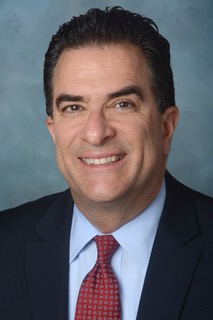
Sadeer Hannush MD
The 10th EuCornea Congress will take place 13-14 September 2019 at the Paris Expo Porte de Versailles in Paris, France. The programme will include updates on ectatic disease and viral keratitis, sessions on corneal ulcers and ocular allergy and the ESCRS/EuCornea Joint Symposium on Cataract Surgery in Eyes with Diseased Corneas.
One of the highlights of the Congress will be the EuCornea Medal Lecture, which will be delivered this year by Sadeer Hannush MD, USA. Dr Hannush is Attending Surgeon on the Cornea Service at Wills Eye Hospital and Professor of Ophthalmology at Sidney Kimmel Medical College of Thomas Jefferson University in Philadelphia, USA.
Dr Hannush’s areas of interest are full and partial thickness corneal transplantation (endothelial and deep anterior lamellar keratoplasty), permanent keratoprosthesis surgery (artificial cornea), complex cataract and anterior segment reconstructive procedures, and laser vision correction. He lectures both in the US and around the world on these topics, and his written work appears across the peer-reviewed literature and ophthalmology texts.
Dr Hannush has also taken part in several clinical trials sponsored by the National Institutes of Health. Therefore, he is ideally placed to deliver this year’s Medal Lecture titled “Clinical Corneal Research: Why It Is Important to Get Involved”.
For Dr Hannush, the answer is simple: “An average ophthalmologist may touch the lives of 40,000 people during the course of a career. If we change practice patterns, on the other hand, we can touch the lives of millions.”
His personal journey through clinical corneal research has seen him involved with studies such as ‘Prospective Evaluation of Radial Keratotomy’, ‘Collaborative Corneal Transplantation Studies’, ‘Herpetic Eye Disease Studies’, 'Cornea Donor Study’, 'Corneal Preservation Time Study’, ‘Long-term Survival of Permanent Keratoprosthesis’, and the ‘Keratoprosthesis Crosslinking Study’.
Each of these studies asked a ‘simple’, ‘high-impact’ question that could be answered with a well-defined answer. The key common factor in all of them, according to Dr Hannush, is collaboration, something that is essential to research that is robust and sound.
The lecture will draw on Dr Hannush’s three-decade post-training experience in the areas of cornea and external disease, maintaining a private practice while being actively involved in academic medicine as Attending Surgeon at Wills Eye Hospital and Professor of Ophthalmology at Thomas Jefferson University in Philadelphia.
This year, at its annual meeting in San Francisco, the American Academy of Ophthalmology will award Dr Hannush the prestigious Life Achievement Award in education.
For more information and details on registering to attend the Congress, please visit
http://www.eucornea.org/paris-2019

 Sadeer Hannush MD
Sadeer Hannush MD